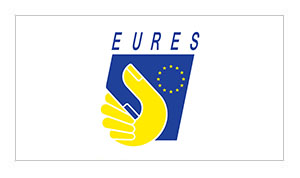We need foreign workers who are contributors to our economic growth, but no one should take advantage of them.
July 30 is United Nations World Day against Trafficking in Persons, established to raise awareness about the plight of human trafficking victims and to promote and protect their rights.
It is a day where trade unions reaffirm their pledge to protect workers, irrespective of who they are or where they come from, against the ravages of abusive and unfair employment practices and illegalities which also have a spillover effect on lawful businesses and their employees.
The General Workers’ Union has recently been at the forefront of numerous campaigns to bring about legislative change that protects workers from abusive recruitment or employment practices.
We were among the first to raise the problem of contracted workers employed by recruitment agencies on disparate wage conditions and discriminatory conditions.
We impressed upon the government the need for every worker to be treated equally because the value of work dictates the pay, not who you work for.
This is a cornerstone of social justice for all workers because wage disparity devalues workers’ contributions and leads to an unequal society.
Nothing could be closer to home than the fate of third-country nationals, many hailing from the Indian subcontinent, who spoke to us of the abuse suffered from employers who did not deliver on what they promised.
These migrant workers were asked to pay thousands of euros before coming here, often resulting in their entire family being bonded by debt, on the promise of a decent wage in a Maltese job.
Yet, once in Malta, they had to work more hours than necessary to earn a salary that is equivalent to a job of 40 hours work – a Catch-22 situation that left them with no choice, lest they risk working in the black economy and face possible deportation.
I am saddened and angry at whoever makes money stained with blood and racism: we need foreign workers who are contributors to our economic growth but no one should take advantage of them.
Today, the International Labour Organisation estimates that 28 million people globally are trapped in forced labour on any given day, a huge business that generates annual profits of $150 billion – money that states could be spending on improved healthcare and education, or climate change mitigation.
Many third-country nationals have suffered abuse from employers who did not deliver on what they promised– Josef Bugeja
Beyond the individual consequences for the victims, forced labour comes with economic and social costs for all of us: the coercive and criminal behaviour of forced labour undercuts lawful businesses, which face unfair competition from those who reap the profits, who find they must lower wages or cut benefits, apart from the reality of lost tax revenue for the state.
A critical source of illegal profits from forced labour comes from the unlawful recruitment fees these victims are faced with: fees charged either by employers or abusive recruiters, hidden travel intermediaries, or from bribes and kickbacks – which range from an average of 3.93 months’ pay to more than one year-and-a-half.
We must recognise who the victims are when migrant workers are not protected by law or are unable to exercise their rights and when recruitment practices are unfair or unethical. We must target profiteers, not workers.
Trade unions today have evolved with the changing landscape of labour dynamics. In the face of abusive practices against unprotected workers, the GWU has proposed a transformative step forward: legally binding trade union membership for every worker registered with the Maltese labour authority. Because, right now, thousands of workers are being denied their basic right of association, a right that could shield them from exploitation and abuse.
Only a collective voice can eradicate the systemic abuse that a significant portion of the workforce faces daily and ensure that each worker is treated fairly.
The fight against human trafficking is a fight for justice, dignity and human rights. As trade union leaders, we must stand at the forefront of this struggle, working tirelessly to create a world where every individual can live free from fear and exploitation.
Josef Bugeja is secretary general of the General Workers’ Union.











